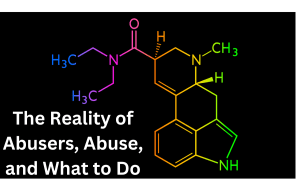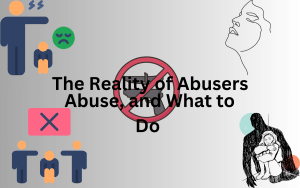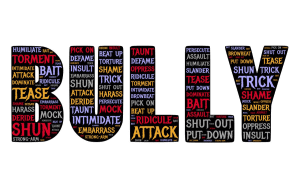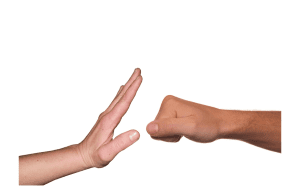The Reality of Abusers, Abuse, and What to Do

What is Abuse?
Abuse occurs whenever one person causes distress to another, either physically or psychologically. It’s possible in every form of connection, whether platonic or sexual or even in the family. People are abused when they are the target of violent acts committed because of their race, religion, ability, gender, or sexual orientation.
Abuse can manifest itself in various ways, including neglect, cruel treatment, harm, assault, violation, rape, injustice, crime, and other aggressive acts. Nikki Haley, a presidential candidate and former governor of South Carolina, did not denounce Donald Trump following his conviction for defaming and sexually abusing writer E Jean Carroll.
More than three million domestic violence cases involving men and women are recorded annually. In the United States, an intimate partner physical abuse over 20 people per minute. That’s more than 10 million people in a single year. A third of women and a quarter of men will have suffered interpersonal violence, with a seventh of women and a third of men have encountered serious violence.
Emotional abuse, which can vary from withholding affection to controlling someone’s every move, often goes unreported despite its seriousness. The scale of the problem is just staggering. Emotional abuse is sneaky and destroys your self-esteem gradually. The aftermath can be as difficult to overcome as that of overt violence.
When Should I Get Flood Insurance, and What Is It?
Realities of Abuse
Violence is typically downplayed by victims. Throwing or smashing objects, slapping, pushing, pulling hair, and forced sex are all examples of violence.
These Are Some Details to Keep in Mind:
- Abuse is typically hidden from view.
- Abusers always claim they didn’t do anything wrong.
- Abusers often place the blame on the victim.
- Verbal harassment often leads to physical assault.
- When you’re abused, your pride takes a hit.
- Abusers have an inherent need to be validated and in charge.
- The abuser is possessive and may try to cut off the victim’s access to their support system.
- The abuser is likely to be very reactive and angry.
- Homicide rates are five times more likely when guns are in the home.
- Almost two-thirds of those who commit domestic violence have been drinking.
- Around a third of murder victims have substance abuse histories.
What Are the Different Forms of Abuse?


Some major kinds of abuse are physical, sexual, and emotional.
Physically Abuse
To physically abuse someone is to cause them bodily harm. This category encompasses any act that results in physical injury, scarring, or agony, such as striking, shaking, burning, pinching, biting, choking, tossing, and beating.
Sexual Abuse
Any sexual conduct between an adult and a minor or between a child of a considerably different age qualifies as sexual abuse. If one individual is physically stronger than another, it is sexual abuse regardless of age.
Emotional Abuse
When adults consistently criticize, threaten, or talk down to children and teenagers to the point where they feel terrible about themselves and their self-worth is harmed, this is emotional abuse. As with physical and sexual abuse, the effects of emotional abuse can be painful and long-lasting
Online Abuse.
Emotional or sexual abuse can also occur in the virtual world, known as online abuse.
Any online communication (such as an intimidating or threatening message) intended to intimidate or hurt another person is considered online emotional abuse.
Someone is being sexually abused online if they are pressured to post sexually explicit photos or videos of themselves, engage in sexual acts through webcam or smartphone, or conduct sexually explicit talks via text or online chat.
People who do this could offer or promise anything of value in exchange for cooperation. The abuse can continue to have an impact because of the pictures and videos taken of it.
Examples of Other Forms of Abuse Are:
Neglect
occurs when a child or teenager lacks basic necessities such as adequate nutrition, shelter, clothing, medical attention, education, and/or supervision. When a parent doesn’t show emotional concern or gives little attention to their child, it’s called emotional neglect. This isn’t the time when parents deny their children luxuries like new electronics. In this context, “basic needs” refer to food, shelter, and affection.
Domestic Violence
When two or more adult people physically assault each other, this is called domestic violence. Seeing domestic violence can be upsetting and even dangerous for children and teenagers, especially if adults throw or break objects during their arguments.
Bully
Abusive behaviour does not necessarily involve physical contact; it might be intimidation, threats, or taunting. Bullies often have a history of being victims of abuse themselves.


Aware of the Harm Done
Someone who has been abused for a long time or is being mistreated by someone they know or trust may have trouble recognizing abuse in themselves or others. Mistakenly attributing a problem to oneself because they disobeyed authority figures, failed to follow the rules, or fell short of others’ expectations is common.
Someone raised in an abusive or violent household may internalize the belief that this is the proper or only way for family members to treat each other. Someone who has only experienced violent relationships may view physical violence, verbal abuse, or the use of derogatory labels as appropriate responses to conflict.
Children who witness their parents’ aggressive behaviour toward each other may accept it as normal behaviour. However, abusive behaviour is neither normal nor beneficial. Ask a trusted adult or friend if you need help determining if you or a friend are being abused.
How Does Abuse Affect People?
Anger and yelling are commonplace in many parent-teen relationships and among teens themselves. However, stress and other health issues might result if punishments, fights, or ranting carry on for too long or are excessive.
Self-esteem, mood, focus, sleep quality, and interest in previously enjoyable hobbies can all be negatively impacted by abuse. Abuse can have far-reaching consequences long after the abusive behaviour has stopped.
Because of individual differences in age, level of social support, and other factors, the effects of abuse can vary greatly from one person to the next. Consequently, prompt assistance is required.
Normal Abuser
Abusers often feel helpless, and you might not even notice. They don’t fake insecurity to conceal their true feelings. They frequently resort to bullying others. All of them are motivated by a desire for control over their victim. This is because, despite their material prosperity, they do not believe in their own strength. They view conversation as a zero-sum activity.
Correlation Between Depression and Alcohol; Use of Alcohol and the Risk of Developing Depression
The Following Character Traits Are Common Among Such People:


- Insecure.
- Overly dependent and demanding attention from others.
- Distrustful.
- Often envious.
- Abusive in word use.
- Wants to be correct and in charge.
- Overly possessive, to the point of cutting off their partner’s access to their social circle.
- Overly reactive and sensitive.
- Has a record of violent behaviour.
- Is harmful to either children or animals.
- Puts the blame for their actions on others.
- Has untreated depression or suicidal tendencies, or other mental health issues.
Methods of Reply
Most abused rationally respond by explaining themselves and assuming that the abuser is listening. This reinforces the abuser’s sense of victory and power.
Instead, devise your action plan and refrain from responding to abusive behaviour. You can accomplish this by not replying at all or by responding in a way that the abuser doesn’t expect, such as with humour.
You can also set limits, confront the abuser, and ask for your desired conduct.
Instead of standing up to an abuser, most victims try to make them feel bad about themselves. Abuse usually persists despite such efforts.
Better Mental Health is Crucial For A better Family and Society
The Realities of Violent Behavior
Obtaining help and learning to set boundaries is crucial if you have experienced aggression, such as pushing, pulling hair, or damaging property. Abusers and their victims often downplay or ignore the severity of the issue and argue they have no choice but to behave this way.
That simply isn’t the case. Take note that they refrain from using foul language when communicating with management. They justify their bad behaviour by saying it was your fault and that you should make adjustments. The actions of others are never your fault.
The Recurring Cycle of Violence May be Familiar to You:


- Tensions are rising.
- This assault.
- Sadness and apologies.
- A time of courtship marked by romantic gestures.
Like a terrorist, an abusive partner may use the threat of violence to control you. Aborting violent acts while they are still in the planning stages is optimal. Because of their extreme worry and dread, some victims may even try to instigate an assault.
Abusers often apologize and swear to stop abusing their victims after an attack. Still, this behaviour will continue unless the abuser receives professional psychological help. Don’t put any stock in their assurances.
Simply Put, GBWhatsApp Pro APK is the Latest and Greatest Version of the Popular Messaging App.
As to Why Victims Remain
There are a variety of factors that keep victims in abusive relationships. According to the data, victims of violence suffer up to seven separate assaults on average.
Dependence is the Primary Cause:
The victim’s self-esteem and confidence plummet due to the abuser’s control, the victim’s humiliation about the abuse, and the dysfunctional structure of the relationship.
This, in turn, makes the victim fearful and dependent on the abuser. Abuse is viewed as a form of rejection on an emotional level, coupled with the prospect of abandonment.
During the honeymoon, the victim experiences a temporary reduction in their emotions of humiliation and their fear of further abuse and abandonment. The abused person then holds out hope that the abuser will eventually reform.
After all, there are often pleasant intervals between the bad ones. There are typically children involved, and there are reasons why the victim loves or formerly loved the abuser.
Abusers often exhibit a Jekyll-and-Hyde dichotomy of traits. Dr Jekyll frequently makes love proclamations and is charming, passionate, and perhaps effective. You have a soft spot for Dr Jekyll but justify Mr Hyde’s behaviour.
It’s possible you can’t perceive the person as the whole issue. It’s easy to conflate love and grief if your childhood connection with your parents was tumultuous.
Become a Fashion Designer: 10 Online Fashion Design Courses to Boost Your Skills
Here are Some of the Other Reasons Why Victims Stick Around:
- Finances.
- No other option for housing.
- Having no one to lean on emotionally.
- Worries about kids’ care.
- Getting the rap for the mistreatment.
- Dismissing, downplaying and making excuses for the mistreatment.
- Lacking confidence and self-worth.
- They have an unhealthy obsession with their abuser.
Those who have been abused often carry a heavy burden of guilt. You have suffered a blow to your pride and sense of self-worth. You keep the abuse secret from those closest to you, both to spare the abuser’s honour and to avoid more humiliation.
An abuser will criticize your loved ones and comment to make you choose sides to push you further away from them. Either you support them, or you oppose them. You must take the abuser’s side if he or she feels insulted; otherwise, you’re making friends with the perpetrator. This is an effort to tighten his or her grip on you and make you more reliant on them.
Top 9 Skills for Digital Marketing Expert: If You Want To Be Successful in Digital Marketing
Possible Next Steps


Discussing your issues and working on your relationship by developing external support systems is important. Working with a trained expert is ideal because it allows you to gain confidence and discover what you need to do to better yourself without feeling pressured or condemned.
Find a low-cost clinical in your area, read as many books and articles as possible, participate in internet forums, and connect with a local abused women’s shelter for help if you can’t afford private individual treatment. If you must keep a secret, do it. You should be allowed some personal space.
For more reading, click here,
When Dating, Be aware of a Person Who:
- Demands to always get his or her way and is unwilling to make concessions.
- Sometimes, he explodes in rage.
- Is offensive to the sensibilities of others.
- Insults you or your loved ones.
- Behaves possessively or jealously.
- Is prone to paranoia.
- Puts you in danger
Although the person is interested in you and making romantic overtures, you should still heed these indicators. The abuser will wait until he or she is sure you won’t leave before resorting to violence.
At first, this person will try to win you over and keep you from seeing your loved ones. Test his or her respect for your limits. You’re less inclined to leave an abusive partner when you have a child or get married. Yet things can heat up if you make an exit. That’s why it’s crucial to have a strategy and backup.
Why Transgender People Suffering From More Mental Health Issues
Don’t sit around and wait to be attacked. Call the police if you or someone you know is in danger.
The Following are Some More Things You May do to be Ready for an Emergency:
- Create an account at a bank and a credit card in your name.
- Stay with a trusted family member or close friend.
- Pack your essentials, including your passport, bank info, credit cards, phone book, and cash, and keep the bag in that location. Bring along and bring playthings and clothing for the kids as well.
- If anyone in the area hears any suspicious noises, they should contact the police immediately.
- Create an extra set of keys for the car and the house. Get out of here quickly by hiding your automobile keys outside.
- Get rid of any weapons you may have at home.
Remember that you risk losing yourself if you avoid facing abuse out of fear of losing someone’s love.
Visit blogkingworld.com for more details,




